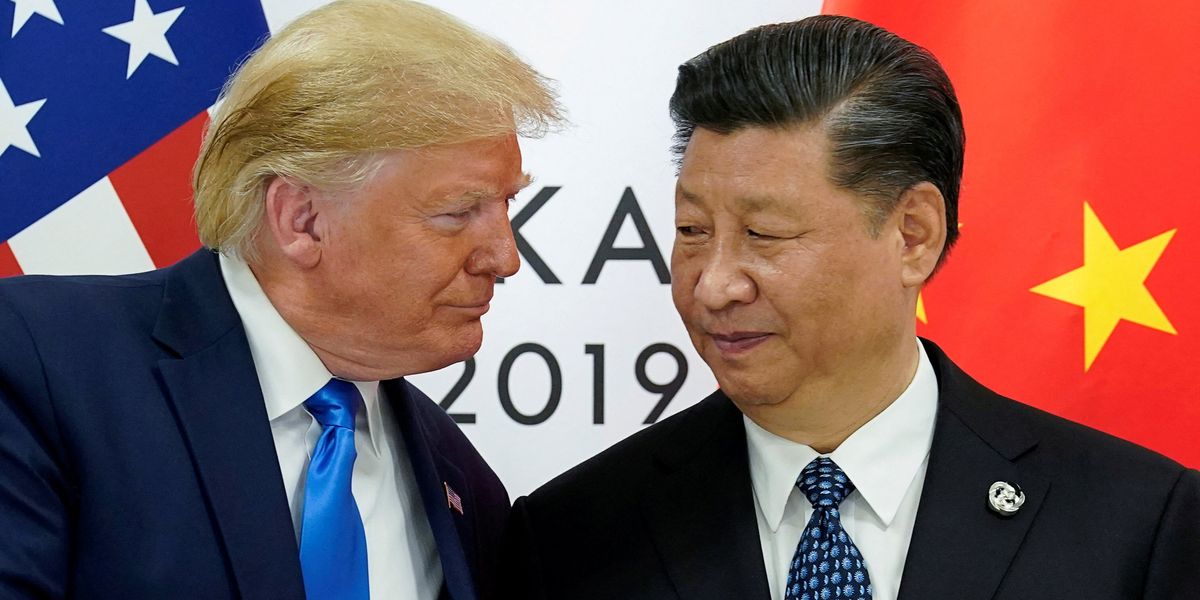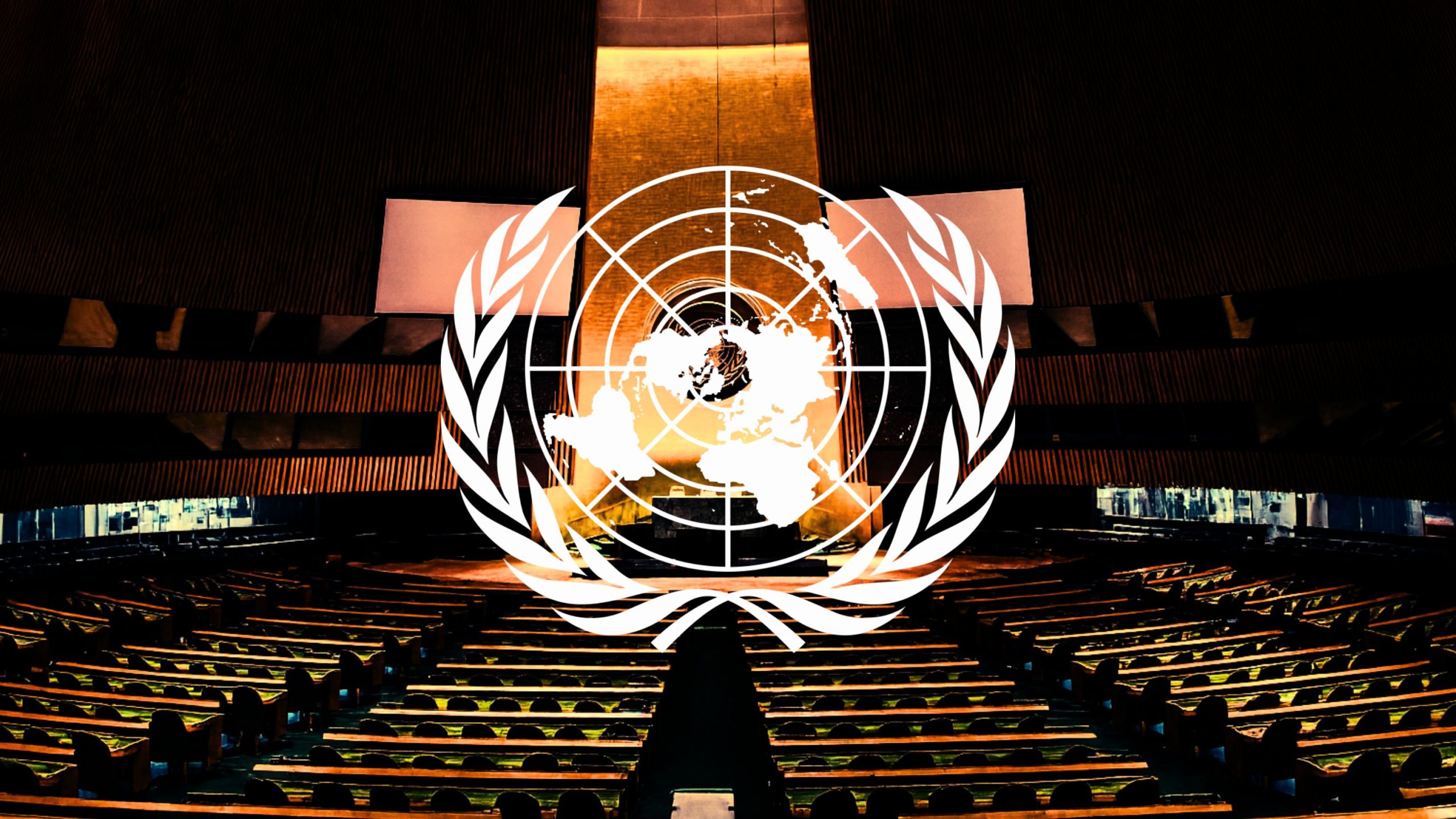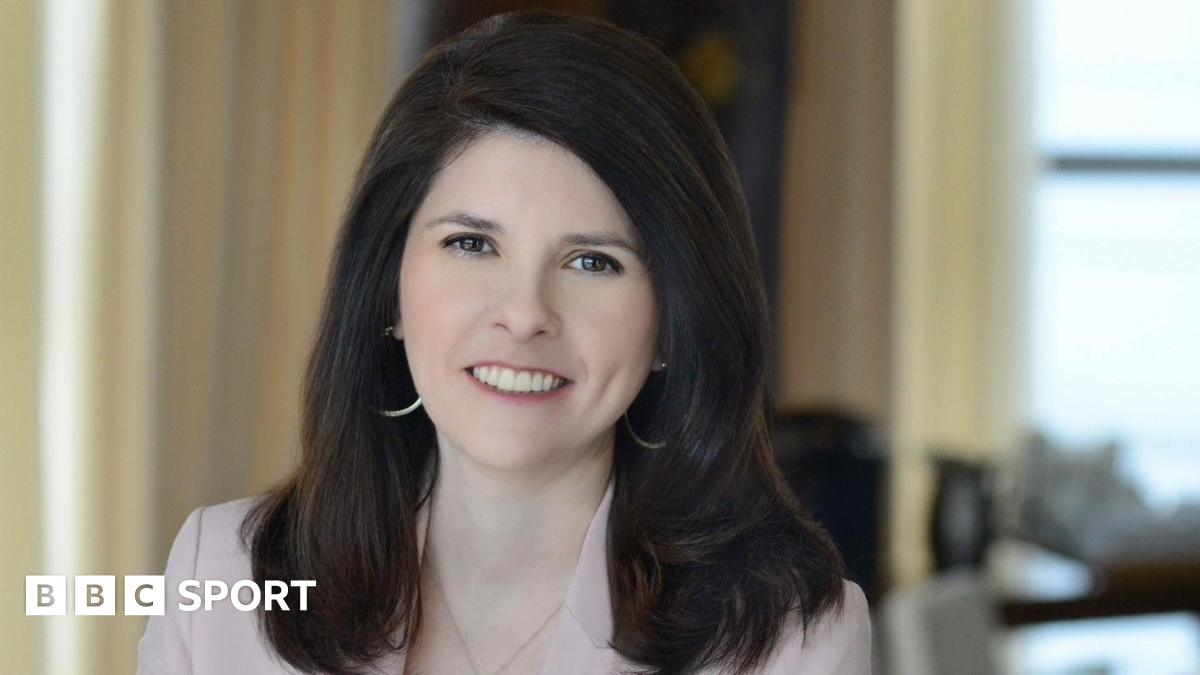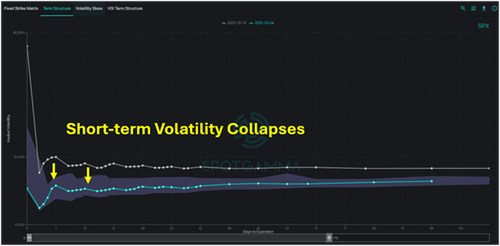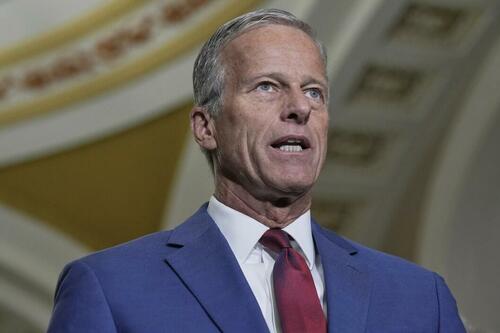Fear of mass killings as thousands trapped in besieged Sudan city taken by militia group – live updates
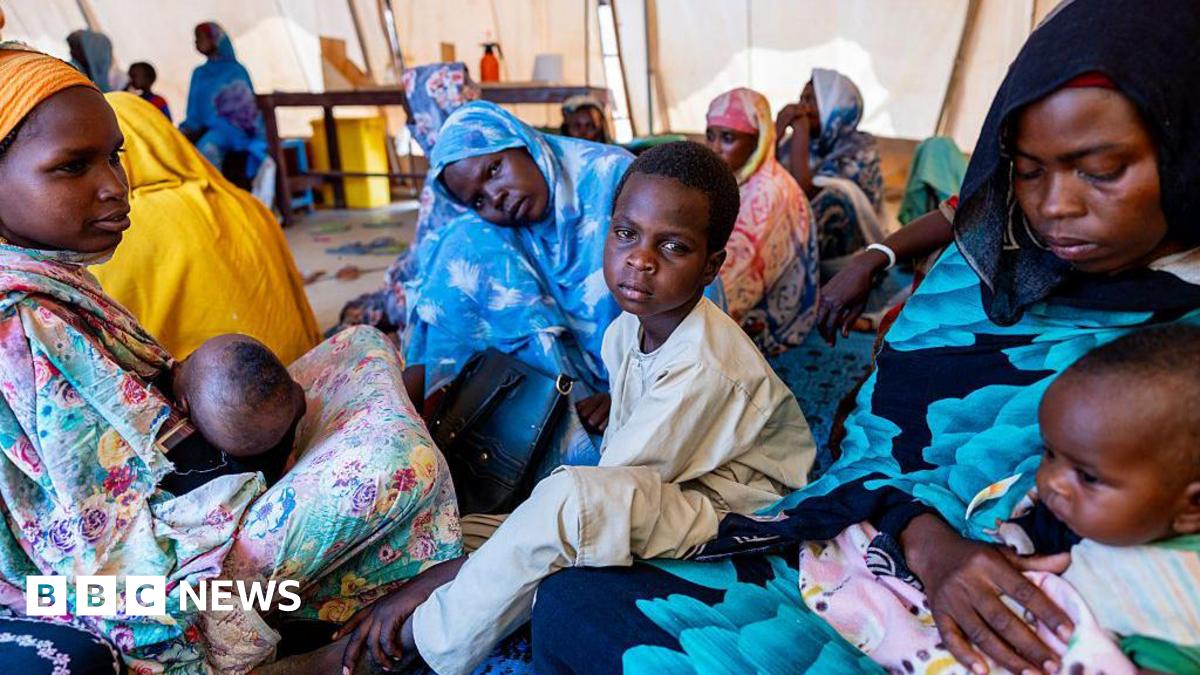

Videos confirm RSF have taken area in central Sudanpublished at 13:34 GMT
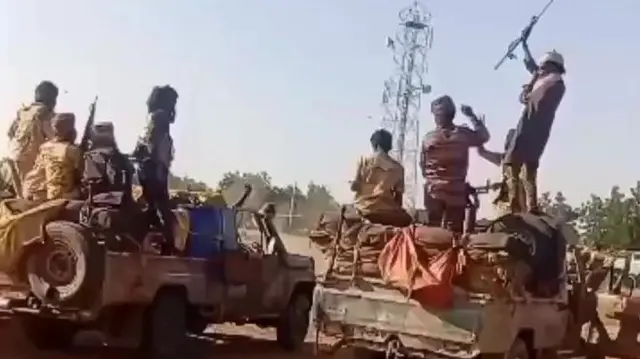 Image source, Telegram
Image source, Telegram
By Richard Irvine-Brown and Sherie Ryder
We’ve been monitoring footage of fighters from the paramilitary Rapid Support Forces (RSF) seizing control of another area in central Sudan.
Video posted online earlier this week shows the RSF celebrating its consolidation of the Um Dam Haj Ahmed area in North Kordofan province. It sits about 65km (40 miles) east of Barah, the easternmost major town under RSF control.
The RSF, which has been fighting a civil war with the Sudanese military for over two years, also seized control of North Darfur province’s capital el-Fasher over the weekend after laying siege to the key city for 18 months.
The new footage shows armed men in camouflage with several flatbed trucks cheering outside a local government building in Um Dam Haj Ahmed, which is around 610km (379 miles) to the east of el-Fasher.
We could geolocate the large open space it was filmed in by matching nearby pylons and half-buried tyres which marked out the local football pitch on satellite images.
The video was shared by RSF on their Telegram messaging app channel – and the RSF claim they have taken total control of Um Dam Haj Ahmed. Yesterday, Al Jazeera cited Sudanese military sources also saying the RSF had taken control of it.
A trickle of exhausted people make it out of el-Fasherpublished at 13:15 GMT
Handwritten lists of what are said to be names of people who have managed to get out of el-Fasher to the town of Tawila are being circulated on social media.
“Please share it with anyone searching for their loved ones!” writes one person on X, aware that many are fearing for their relatives.
But only a tiny number of the estimated 260,000 residents of el-Fasher have reached Tawila – which is around 50km (31 miles) away.
A video from a local aid group in Tawila shows exhausted people sitting on the ground waiting to see what happens next.
“New arrivals report dangerous movements and horrific abuses [in el-Fasher],” Filippo Grandi, the head of the UN’s refugee agency has said on X.
“I join those calling for respect of International Humanitarian Law, safe passage and most urgently a ceasefire to end the senseless Sudan conflict,” he adds.
Starving civilians walk for a week to reach aidpublished at 13:01 GMT
Trapped civilians are being refused safe passage out of el-Fasher, says the UN, and the lucky few who do escape are walking seven days to the nearest aid camp in many cases.
“These people are… malnourished – whether children or adults, dehydrated, some of them injured, and of course, all of them traumatised by the violence,” Denise Brown, the UN’s Resident Coordinator for Sudan, tells BBC Newsday.
About 200 people arrived to Tawila, about 50km (31 miles) from el-Fasher on Sunday, she says.
Unarmed civilians stuck in el-Fasher have been subjected to summary executions, according to the humanitarian body.
“We don’t yet know the numbers… this is all very very recent but we are following very closely. The RSF is responsible under international humanitarian law for protecting civilians,” Brown tells the BBC. “This is on them and there will be further investigations and eventually people do need to be held accountable.”
She says the country’s only hope is to find a “political solution”, adding:
“People need to get around the table. I don’t know how much longer the people up there in North Darfur or in the Kordofans…can take and how much more we can actually do with our capacity and the very limited funding that we have.”
Army and RSF militia both accused of committing war crimes in Sudanpublished at 12:45 GMT
Since the war broke out in April 2023, the UN has alleged that war crimes are being committed by the RSF and the army.
A report by the UN Fact-Finding Mission, external says both the Sudanese army and the RSF have directed large-scale attacks against civilians and vital infrastructure like food and water systems, healthcare centres and displacement camps.
The UN has alleged that the RSF is committing crimes against humanity, including murder, torture and sexual violence, among others. The militia is also accused of using “starvation as a weapon”.
Separately, the US accused the RSF of committing genocide against Darfur’s non-Arabic population earlier this year.
In April, between 300 and 1,500 civilians – mostly women and children were massacred at a displacement camp in western Darfur region.
Both the army and the RSF have denied the allegations.
Deaths from conflict immeasurable, Sudanese man tells BBCpublished at 12:25 GMT
Altahir Hashim says people all over the globe with relatives in Darfur are living a “profound sadness” as news of their loved ones’ deaths comes in.
“In the past 10 days, I’ve lost nearly 10 people. This is only from my family. And if we go to the extended family… I stopped counting them now, because every single minute I would receive a phone call telling me that someone has got killed,” he tells BBC Newsday.
On Monday, he was told that his close friend Muhammad Khamis Duda with whom he worked in community kitchens had been killed.
“He was taken prisoner and executed right there with a team of people who were working to aid people.”
Altahir says it feels “like the world just ignores our suffering”.
Have there been attempts to end the conflict?published at 12:06 GMT
There have been several rounds of peace talks in Saudi Arabia and Bahrain – but they have failed.
BBC deputy Africa editor Anne Soy says that both sides, especially the army, have shown an unwillingness to agree to a ceasefire.
UN health chief Tedros Adhanom Ghebreyesus has also lamented that there is less global interest in the conflict in Sudan, and other recent conflicts in Africa, compared to crises elsewhere in the world.
“I think race is in the play here,” he told the BBC in September 2024.
The International Crisis Group (ICG) think-tank has called diplomatic efforts to end the war “lacklustre”, while Amnesty International has labelled the world’s response “woefully inadequate”.
Humanitarian work has also been badly affected by the decision of the Trump administration to cut aid.
We saw many of our relatives being massacred, says man with family in el-Fasherpublished at 11:24 GMT
“We’ve witnessed many of our relatives being massacred,” one man who’s lost contact with family members in el-Fasher tells the BBC World Service.
He says they were gathered in one place and killed following the capture of the city.
Communication has been “completely cut off” in North Darfur State, the resident says, so he has no idea what has happened to family members who are still alive.
Quote Message
We are deeply worried… We don’t know what we can possibly do.”
Man with family in el-Fasher
As a reminder, the UN has raised the alarm over reports of atrocities committed by the Rapid Support Forces in recent days, but the RSF denies killing civilians.
Who are the Rapid Support Forces?published at 11:22 GMT
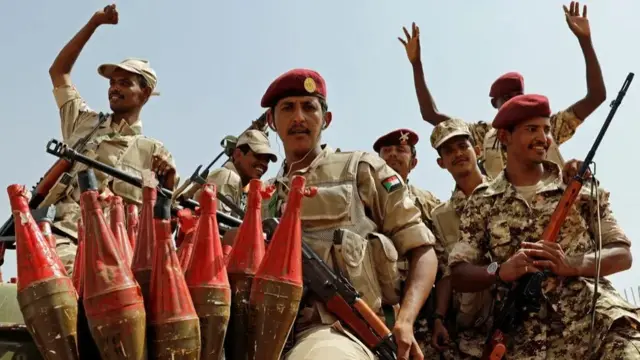 Image source, Reuters
Image source, Reuters
The RSF was allied with the army until they fell out
The Rapid Support Forces (RSF) was formed in 2013 and has its origins in the notorious Janjaweed militia that brutally fought rebels in Darfur, where they were accused of genocide and ethnic cleansing against the region’s non-Arab population.
Since then, its leader, Gen Dagalo, has built a powerful force that has intervened in conflicts in Yemen and Libya.
He also controls some of Sudan’s gold mines, and allegedly smuggles the metal to the United Arab Emirates (UAE).
The army accuses the UAE of backing the RSF, and carrying out drone strikes in Sudan. The oil-rich Gulf state denies the allegation.
The army also accuses eastern Libyan strongman Gen Khalifa Haftar of supporting the RSF by helping it to smuggle weapons into Sudan, and sending fighters to bolster the RSF.
In early June 2025, the RSF achieved a major victory when it took control of territory along Sudan’s border with Libya and Egypt.
With el-Fasher now in its hands, the paramilitary group is now unchallenged in much of Darfur and lso in neighbouring Kordofan region.
In July it formed a rival government, raising fears that Sudan could split for a second time – South Sudan seceded in 2011, taking with it most of the country’s oil fields.
WhatsApp chats have become waking nightmares during Sudan conflictpublished at 11:07 GMT
 Barbara Plett Usher
Barbara Plett Usher
Reporting from Nairobi
At the BBC in Nairobi, we’ve been covering the battle for control of el-Fasher since it began – monitoring it remotely, getting footage and interviews from brave local journalists in the city.
Inevitably that means we’re on WhatsApp chat groups with reporters and activists who are closely following the story.
Those chats have become a waking nightmare, with posts about members taken captive and even killed.
Some friends are finding out their loved ones are dead through videos of executions on social media.
‘We’ve lost contact with our families,’ woman with relatives in el-Fasher tells BBCpublished at 11:03 GMT
Our BBC World Service colleagues have been hearing from families from el-Fasher who are outside the city and have been left in a state of anxiety and dread after losing contact with their loved ones.
“May God protect the city and all the surrounding towns,” one resident says, adding that many people still inside the city have been “unreachable” since Monday.
“Many people were killed, others are wounded, and some are unable to leave el-Fasher,” she adds.
Quote Message
We’ve lost contact with our families and with many people still inside el-Fasher, even though we’ve repeatedly called for their safe evacuation.”
Woman with relatives in el-Fasher
How the conflict in Sudan beganpublished at 10:32 GMT
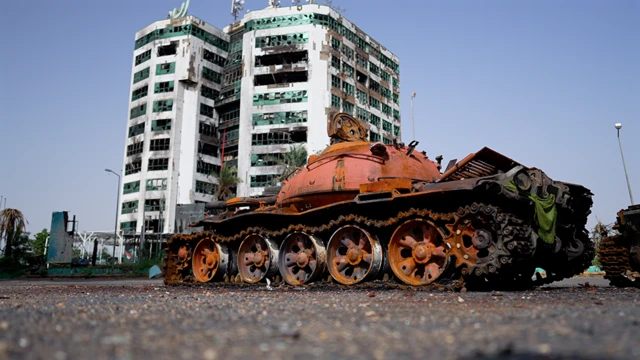
Much of the capital, Khartoum, lies in ruins after the two sides battled for control of the city
The civil war has been raging in Sudan for two-and-a-half years now. It has been estimated that at least 150,000 people have been killed – including many civilians – and more than 14 million people have been forced from their homes.
The conflict started in April 2023 after the country’s two leading military figures fell out over the future direction of the country.
Gen Abdel Fattah al-Burhan headed the armed forces and his deputy, Gen Mohamed Hamdan Dagalo, better known as “Hemedti”, was in charge of the Rapid Support Forces paramilitary group.
Fighting began in the capital, Khartoum, but spread countrywide as the two sides battled for control.
A major turning point earlier this year was seen when the army retook Khartoum in March, but this did not end the fighting.
The army’s withdrawal from el-Fasher leaves the RSF in control of most of the west of the country. There are fears that it is now being split in two.
Diplomatic efforts to end the war have failed and there have been accusations that both sides are getting support from other countries.
Where is Sudan?published at 10:22 GMT
Sudan is in north-east Africa and is one of the largest countries on the continent, covering 1.9 million sq km (734,000 sq miles).
It borders seven countries and the Red Sea. The River Nile also flows through it, making it strategically important for foreign powers.
The population of Sudan is predominantly Muslim and the country’s official languages are Arabic and English.
Even before the war started, Sudan was one of the poorest countries in the world – despite the fact that it is a gold-producing nation.
Its 46 million people were living on an average annual income of $750 (£600) a head in 2022.
The conflict has made things much worse. Last year, Sudan’s finance minister said state revenues had shrunk by 80%.
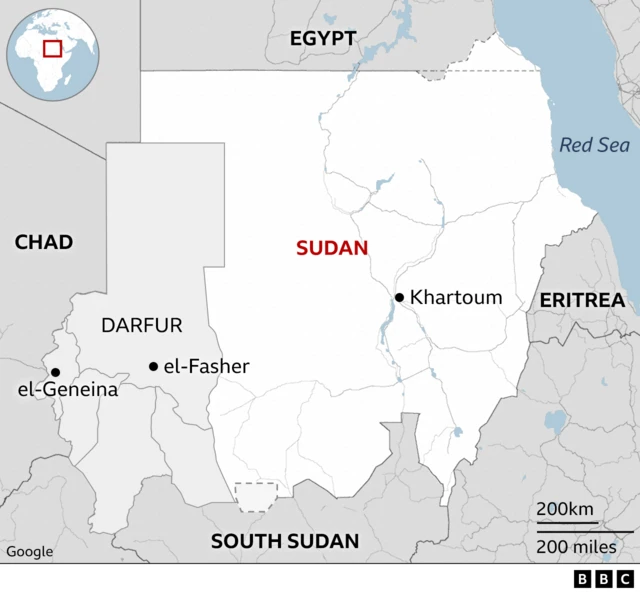
Evidence of mass killings seen in satellite images, US researchers saypublished at 10:09 GMT
Akisa Wandera
BBC News
Researchers in the US say they have found evidence of mass killings, after the paramilitary Rapid Support Forces (RSF) seized control of the city of el-Fasher from the Sudanese army.
The Humanitarian Research Lab at Yale University says satellite imagery shows clusters of what appear to be human bodies near RSF vehicles and a wall that surrounds the city.
The researchers say that the images also confirm that the RSF has captured all the army’s positions.
They have also seen evidence of house-to-house operations and new roadblocks across the city.
Yale’s report warns that the pattern of violence appears ethnically targeted similar to mass atrocities previously documented in other parts of Darfur since the conflict began in April 2023.
It says the RSF’s advance, combined with restricted humanitarian access, “raises the risk of crimes against humanity or even genocide”.
Sudan’s army loses key city of el-Fasher to paramilitary RSF after 18-month siegepublished at 10:01 GMT
Sudan’s military chief has confirmed the army’s withdrawal from its last western stronghold of el-Fasher after the paramilitary Rapid Support Forces (RSF) declared control of the city.
In a televised address, Gen Abdel Fattah al-Burhan said he had approved the withdrawal in response to the “systematic destruction and killing of civilians”.
He said he had agreed with local leaders to “leave and go to a safe place to protect the remaining citizens and the rest of the city from destruction”.
The UN has raised the alarm over reports of atrocities committed by the RSF in recent days, and has called for safe passage for trapped civilians.
The RSF have denied accusations they were killing civilians.
The fall of el-Fasher could mark a significant turning point in Sudan’s civil war, which has killed tens of thousands and displaced nearly 12 million people since April 2023.
The city’s capture gives the RSF control over all five state capitals in Darfur, consolidating its parallel administration in Nyala, the capital of South Darfur.
Recent Top Stories
Sorry, we couldn't find any posts. Please try a different search.



